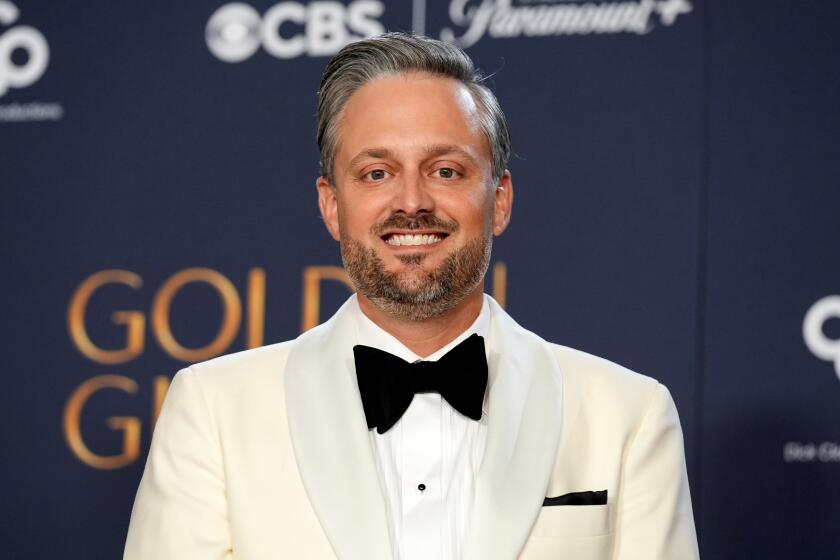Rupert Murdoch pulls plug on ‘the Daily,’ first news app for iPad

- Share via
Rupert Murdoch has pulled the plug on News Corp.’s high-profile experiment to create a digital national newspaper.
The demise of the Daily, announced Monday by News Corp., illustrates the challenges the media baron faces as he attempts to transform his global publishing empire for the Internet age.
The Daily was introduced nearly two years ago as the first news application for Apple Inc.’s iPad and was designed to dazzle a generation of young readers who found print publications too dated and stodgy. But in the end, News Corp.’s expensive endeavor violated an old-school media tenet: Don’t be boring.
“The Daily wasn’t very interesting,” said Ken Doctor, a news industry analyst and author of “Newsonomics,” a book about the future of the online news business. “Visually, it was attractive, but they forgot that if you are going to call it the Daily you have got to change people’s daily reading habits. They never presented enough of a compelling reason to read the Daily.”
Analysts estimated that News Corp. spent at least $80 million to hire big-name journalists and designers and operate the application with the look of a high-end magazine. Along the way, Murdoch discovered that established brands such as the Wall Street Journal would be a more potent draw for readers in the digital world rather than trying to create a new title from scratch.
The Daily will cease publication Dec. 15. Its technology and some employees will be folded into the New York Post, one of Murdoch’s old-media titles.
“From its launch, the Daily was a bold experiment in digital publishing,” Murdoch said in a statement. “Unfortunately, our experience was that we could not find a large enough audience quickly enough to convince us the business model was sustainable in the long term.”
News Corp. on Monday outlined a sweeping restructuring as it prepares to break into two separately traded companies next year. It plans to spin off its publishing assets, including the Journal, the Post, the Times of London, the Australian and book publisher HarperCollins, into an entity that will retain the News Corp. name “in keeping with the company’s 60-year heritage of bringing news to the world,” Murdoch said.
The more profitable entertainment properties will constitute the second company, the Fox Group. The entertainment side will boast News Corp.’s vast television assets, including Fox Broadcasting, cable channels FX, Fox News Channel and National Geographic, regional sports networks, and interests in British and European satellite services, as well as the 20th Century Fox movie studio.
Murdoch, 81, will be the chairman and chief executive of the Fox Group. He will remain chairman of the reconstituted and much smaller News Corp. Robert Thomson, managing editor of the Wall Street Journal, will become chief executive of the publishing company when the corporate split is complete, most likely next summer.
The selection of Thomson, 51, to run the company confirms his increasing stature within Murdoch’s enterprise. Thomson, who like Murdoch is a native of Australia, has been an increasingly close confident of Murdoch since he was installed as managing editor of the Journal and editor in chief of its parent, Dow Jones & Co., in 2008. Before joining Dow Jones, the onetime China correspondent served as editor of the Sunday Times, another News Corp. paper, for six years. Before that, he was editor of the U.S. edition of the Financial Times, owned by News Corp. rival Pearson.
Murdoch, in a Twitter post, called Thomson “a special leader and great friend. Also an Aussie!” In the company’s statement, Murdoch singled out the Journal’s growth internationally and the U.S. during Thomson’s tenure.
The company said the Journal’s deputy editor in chief, Gerard Baker, 50, will succeed Thomson. Baker has worked at the Times of London, BBC and Financial Times.
Separately, the company said Tom Mockridge, who was tapped last year to lead News Corp.’s scandal-plagued British newspaper unit News International, would leave the company at the end of this month. Mockridge, who was passed over for the CEO job in favor of Thomson, had worked at News Corp. since 1991.
Mike Darcey, 47, chief operating officer at pay-TV operator British Sky Broadcasting Group, will replace Mockridge at News International, the company said. He will become the division’s third chief in less than two years. Mockridge last year was dispatched to replace Rebekah Brooks, who was forced to resign over News International’s hacking and bribery scandal at the company’s now-closed News of the World and faces a criminal trial next year.
Monday’s moves were designed, in large part, to structure News Corp. for a new era. Wall Street had long agitated for News Corp. to shed its newspapers and focus on the more profitable television channels and moviemaking. But Murdoch refused to relinquish his publishing titles. Instead, he agreed to separate News Corp. to appease investors and give him the freedom to buy new properties.
The company has more than $10 billion in cash, and has begun a buying spree that includes regional sports networks and an Australian television business. The company is said to be contemplating other acquisitions in the old-media space, including the Los Angeles Times and book publisher Simon & Schuster, owned by CBS Corp.
The company would like to bolster its HarperCollins publishing arm, reportedly to better compete against the powerhouse Amazon.com, which has the ability to offer price discounts.
“The power of the written word has been in my bones for my entire life,” Murdoch wrote Monday in the email to employees. “It began as I listened to my father’s stories from his days as a war correspondent and, later, as a successful publisher. It deepened when, starting in grammar school, I rolled up my sleeves and worked alongside fellow students to publish school journals.”
MORE
INTERACTIVE: TVs highest paid stars
PHOTOS: Hollywood back lot moments
More to Read
From the Oscars to the Emmys.
Get the Envelope newsletter for exclusive awards season coverage, behind-the-scenes stories from the Envelope podcast and columnist Glenn Whipp’s must-read analysis.
You may occasionally receive promotional content from the Los Angeles Times.








